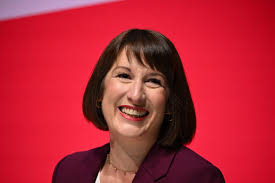Rachel Reeves: An Insight into Her Political Journey

Introduction
As the shadow chancellor of the Exchequer for the UK’s Labour Party, Rachel Reeves has emerged as a central figure in British politics. Born on February 13, 1979, in Lewisham, London, she has established a reputation as a strong advocate for economic reform and social justice. With the upcoming general elections anticipated, her role and strategies are garnering significant attention, making her a pivotal player in shaping the opposition’s vision.
Recent Developments
Reeves has recently been vocal in her critique of the Conservative government’s economic policies, particularly their handling of the cost-of-living crisis which has impacted millions across the UK. In a series of speeches, she emphasised the necessity for increasing investment in public services and progressive tax reforms aimed at supporting struggling families and businesses. This message resonates with voters concerned about rising inflation and stagnant wages.
Key Policies and Proposals
One of Reeves’ most notable proposals is the aim to create a more sustainable economy through greener investments. She has laid out plans for enhancing job creation in the renewable energy sector, reflecting Labour’s commitment to tackling climate change while boosting the economy. During recent discussions, she highlighted the potential for substantial job growth through a green transition, promising to lead the UK towards a more environmentally friendly future.
Challenges Ahead
Despite her growing acclaim, Reeves faces considerable challenges. The Labour Party must regain public trust after years of internal discord and declining support. Her success hinges on her ability to connect with voters and demonstrate that Labour can effectively manage the economy in contrast to the Conservatives. The forthcoming local elections will be crucial for testing her leadership and the popularity of her economic vision.
Conclusion
As the Labour Party gears up for the next general election, Rachel Reeves is positioned as a key player in the fight for economic justice and reform. Her proactive stance on issues affecting everyday citizens underscores her potential as a future leader within the party and possibly beyond. As the political landscape evolves, her strategies and proposals will be closely monitored, making her a significant figure in the dialogue surrounding the UK’s economic future.









